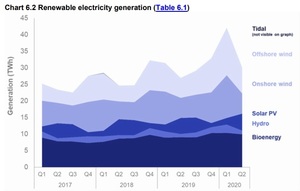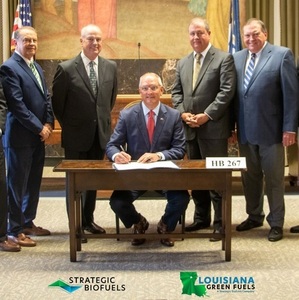EPA awards $2.5 million to 24 environmental projects
Energy Disrupter
ADVERTISEMENT
The U.S. EPA on April 6 announced nearly $2.5 million in awards to 24 small businesses to support the development of environmental technologies. A portion of that funding is supporting bioenergy and biomaterials projects.
Syracuse, New York-based Farm to Flame Energy Inc. was awarded $99,999 to support a novel combustion process than enables biomass from construction, food processing and agricultural waste streams to be transformed into affordable, low-emissions electricity. The company claims that it can use these waste materials to produce clean-burning biobased fuel briquettes. The company has built a 28-watt lab-scale generator that created electricity of 100 parts per million (ppm) of CO. FTF has also established partnerships to deploy its generator through the Center of Excellence, SyracrNY and has secured a long-term 3.5 megawatt (MW) agreement with the University of Calabar, Nigeria. The company said its briquettes will be tested at Wisconsin farms and then distributed through retailers and e-commerce channels.
Kailua, Hawaii-based Simonpietri Enterprises LLC was awarded $100,000 for an integrated system to safely gasify construction and demolition wood (C&D) and produce low-greenhouse gas (GHG) transportation fuel. The company said its technology is fully compatible with existing C&D waste handling and low-sulfur fuel refining infrastructure and meets both U.S. Department of Transportation and ASTM specifications for use in commercial aviation and diesel fuel. Initial life cycle GHG emissions analysis shows fuel made with the technology achieves a 97 percent GHG reduction when compared to fossil fuels.
Vancouver, Washington-based Earth Merchant was awarded $99,974 to support the development of lightweight construction bricks made from industrial hemp, lime, and hemp-derivatives. The product, OlogyBricks, are durable, lightweight and carbon-negative. According to the EPA, the bricks feature superior thermal resistance and mechanical properties that will provide energy efficiency and indoor air quality in single family homes. The agency also noted that the formation of OlogyBricks is innovative in the construction market and designed for increased tensile strength and tensile modulus properties while reducing water absorption and structural swelling with low thermal expansion and lower density than comparable reinforcing materials. OlogyBricks can be used as non-structural infill for wall systems and as façade pieces in residential and commercial construction.
Berkeley, California-based Verdant Structural Engineering was awarded $100,000 to support the development of carbon-storing structural insulated panels for residential applications. The company’s project will not only allow carbon to be stored in walls, it will also offset the use of foam insulation and help create a circular economy between new and existing medium-sized producers and local farmers for straw.
A full list of funded projects is available on the EPA website.
















